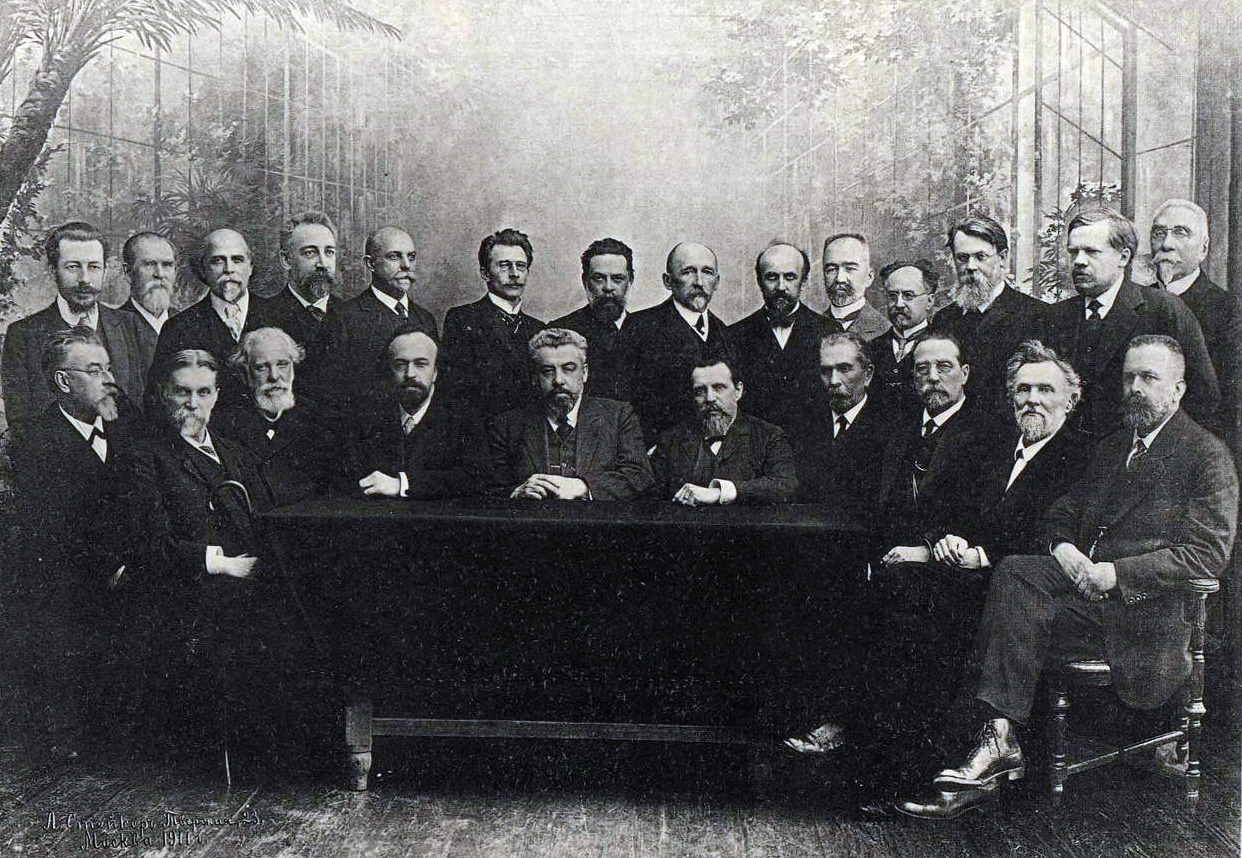Alexander Eichenwald on:
[Wikipedia]
[Google]
[Amazon]
 Alexander Alexandrovich Eichenwald ( 4 January 1864 – 12 September 1944) was a Russian experimental physicist who worked on electrodynamics. He conducted experiments on electromagnetism, electrical fields, and on the construction of instruments to measure magnetic fields. His most famous experiment, following those of
Alexander Alexandrovich Eichenwald ( 4 January 1864 – 12 September 1944) was a Russian experimental physicist who worked on electrodynamics. He conducted experiments on electromagnetism, electrical fields, and on the construction of instruments to measure magnetic fields. His most famous experiment, following those of
 Alexander Alexandrovich Eichenwald ( 4 January 1864 – 12 September 1944) was a Russian experimental physicist who worked on electrodynamics. He conducted experiments on electromagnetism, electrical fields, and on the construction of instruments to measure magnetic fields. His most famous experiment, following those of
Alexander Alexandrovich Eichenwald ( 4 January 1864 – 12 September 1944) was a Russian experimental physicist who worked on electrodynamics. He conducted experiments on electromagnetism, electrical fields, and on the construction of instruments to measure magnetic fields. His most famous experiment, following those of Wilhelm Röntgen
Wilhelm Conrad Röntgen (; 27 March 1845 – 10 February 1923), sometimes Transliteration, transliterated as Roentgen ( ), was a German physicist who produced and detected electromagnetic radiation in a wavelength range known as X-rays. As ...
, examined the predictions of James Clerk Maxwell
James Clerk Maxwell (13 June 1831 – 5 November 1879) was a Scottish physicist and mathematician who was responsible for the classical theory of electromagnetic radiation, which was the first theory to describe electricity, magnetism an ...
. Named after them as the Röntgen-Eichenwald experiment, this demonstrated that the movement of static charges was no different from electric currents in that they produced an electromagnetic field.
Eichenwald was born in St. Petersburg
Saint Petersburg, formerly known as Petrograd and later Leningrad, is the second-largest city in Russia after Moscow. It is situated on the River Neva, at the head of the Gulf of Finland on the Baltic Sea. The city had a population of 5,601, ...
where his father was an artistic portrait photographer while his mother was a musician. An interest in music among the children made him interested in acoustics
Acoustics is a branch of physics that deals with the study of mechanical waves in gases, liquids, and solids including topics such as vibration, sound, ultrasound and infrasound. A scientist who works in the field of acoustics is an acoustician ...
. While at high school he became a friend of P. N. Lebedev and graduated from Moscow University
Moscow State University (MSU), officially M. V. Lomonosov Moscow State University,. is a public research university in Moscow, Russia. The university includes 15 research institutes, 43 faculties, more than 300 departments, and six branches. Al ...
in physics and mathematics. He then joined the St Petersburg Railway Institute and studied engineering after which he went to the University of Strasbourg
The University of Strasbourg (, Unistra) is a public research university located in Strasbourg, France, with over 52,000 students and 3,300 researchers. Founded in the 16th century by Johannes Sturm, it was a center of intellectual life during ...
where he focused on experimental physics under K.F. Braun and on theoretical physics under Emil Cohn. His doctorate in 1897 was on the absorption of electrical waves by electrolytes. He worked at the Moscow Engineering College from 1897 where his work included a demonstration of the magnetic field created by moving electrical charges. He constructed a simple magnetometer in 1903. He became director of the Railway Engineers Institute from 1905 and also taught at the Moscow University from 1906. After the death of Lebedev he presided over the Moscow Physics Society and from 1917 he was involved in organizing higher education in physics. Diagnosed with cancer he moved to Milan and wrote a textbook on electricity that went through multiple editions. In 1903 he demonstrated that static charges on a disc that was rotated could generate a magnetic field.
References
External links
* {{DEFAULTSORT:Eichenwald, Alexander 1864 births 1944 deaths 20th-century Russian physicists Soviet physicists